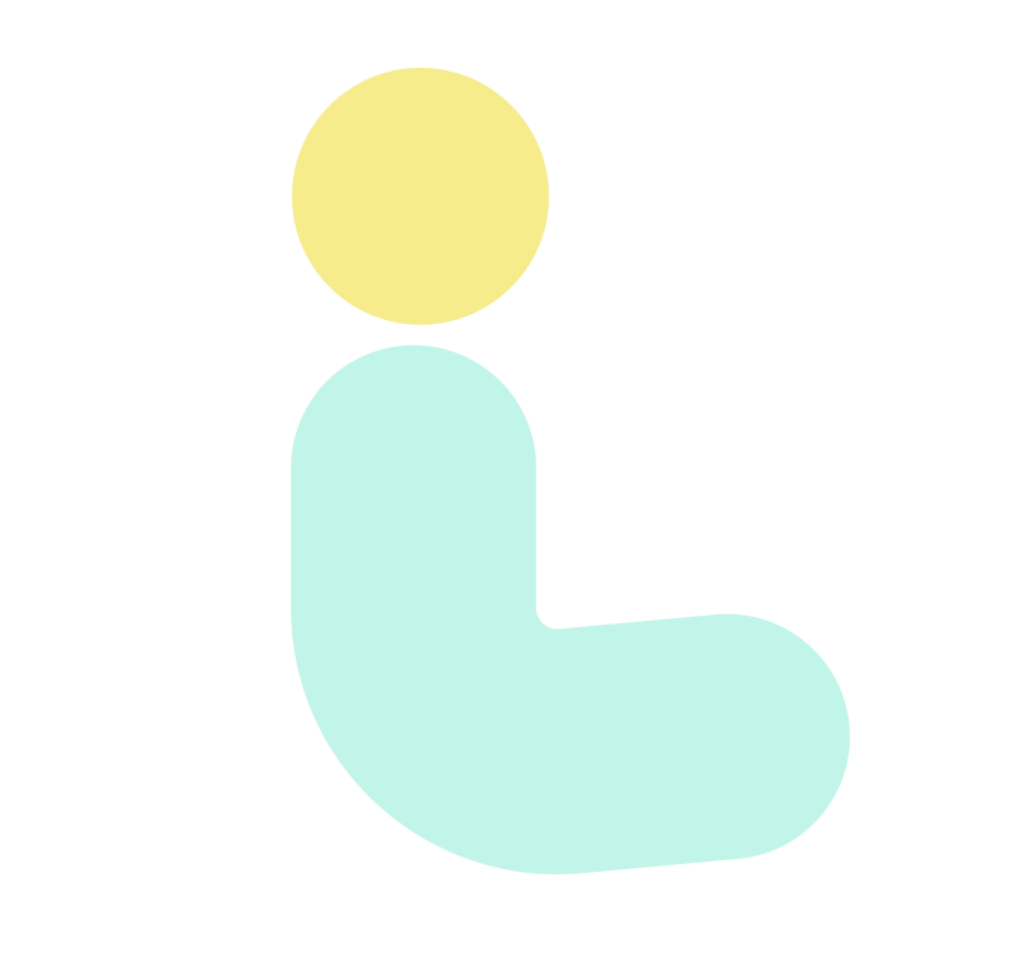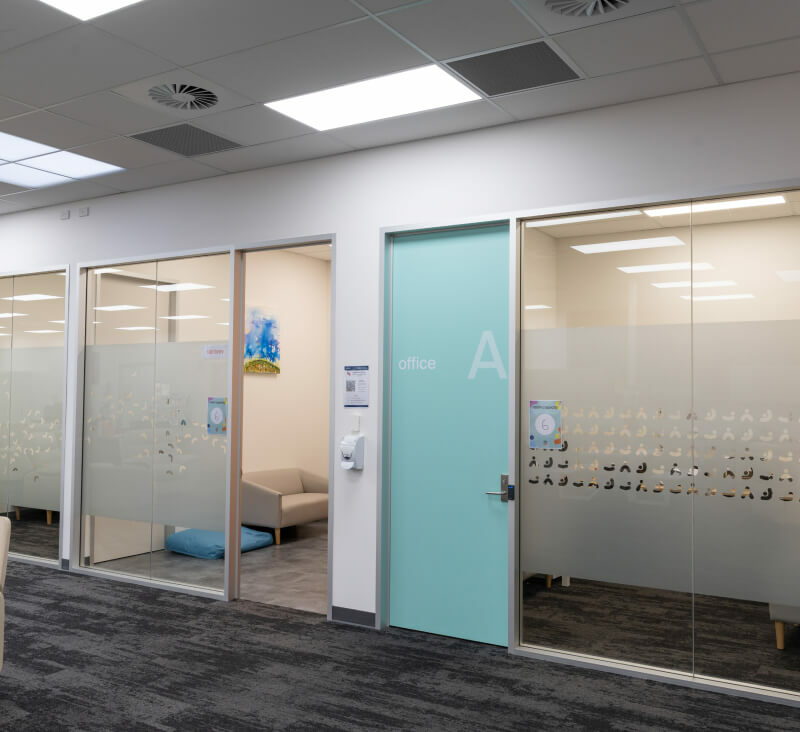Sections on this page
Where to find us
Open 24/7
You can arrive or make a referral 24 hours a day, 7 days a week.
Eligibility
To be eligible for this service, you need to be:
- aged over 16
- experiencing a mental health crisis
- willing to attend the UMHCC*
* This includes Sections 56/57 but who choose the UMHCC for assessment and are likely to stay.
Exclusion Criteria
- People under an Involuntary Treatment Order
- People administered intramuscular medication in the management of acute symptoms prior to arrival at the UMHCC

Take a tour around the UMHCC

Hi I’m Helene Nielsen
I’m the Regional Manager of Crisis Services here at Neami.
Welcome to the Urgent Mental Health Care Center.
I’m going to take you on a bit of a tour so you can have a bit of a look and feel of what the centre’s like and whether that’s for you on a day that you might need it or whether it’s for somebody that you might refer here.
So what you can see here is the welcome area this is where you’ll be asked to fill out some forms just so we can get some information about you and also you’ll be greeted by a Peer Worker who will take you through the waiting room.
A Peer Worker is a person with their own lived experience of mental health whether it’s their own recovery or supporting somebody that they care about.
So once you’ve completed your paperwork the Peer Support Worker will support you to enter the Greeting Room this is where we start to get to know you a little bit better.
During that time a registered nurse will come through as well and they will do a bit of a safety assessment about how we keep you safe while you’re here.
During that time we’ll also collect your belongings. You do get to keep your phone and any sensory items but we just like to keep everything else safe for you while you’re here.
The service is composed of a workforce that’s 50 peer workers with their own lived experience and 50 medical and that model is called the fusion model it’s about bringing the best of those two worlds together so the high connection and collaboration with the safety aspects of the clinical service and that way we can really connect with people that use the service.
We call people that use the service guests so you’ll hear me refer to guests as we go through.
When you’ve completed the welcome a peer will show you through the Living Room and in the Living Room you’ll see that we have a kitchen where you can have various food or drinks so we have a variety from snacks to proper meals cold drinks warm drinks
We also have a shower for those that need that and where the safety assessment allowsand we have clean clothes and we have a laundry so we could clean your clothes if that was necessary as well.
So behind me here you’ll see the Rainbow Room.
This room is one of the private rooms but it has slightly different flooring and that’s to allow guests that benefit from having their pets with them when they’re in a crisis to bring the pet with them.
We do a safety assessment to ensure that the pet doesn’t have a history of hurting other people and we ask that the pet remains in the room.
This room is called the Gathering Room and it’s designed for people who are bringing children with them.
This service isn’t ideal for children people are coming in here and have very serious adult conversations but sometimes we don’t have any choices so if a guest has children with them then we support them to access this room and we keep the children safe in here.
The service is aimed at people who are 16 years and over who are having a mental health crisis so that might mean that they’re having a difficult time just coping with life and various things that are coming up or it might be that something that’s more ongoing for them.
Once you’ve become familiar with the amenities in the Living Room then you will see the nurse that you met in the beginning and they will do a health status assessment.
Once that’s complete you’ll meet with the mental health clinician for your mental health assessment that will either be done with the clinician or also with a peer in the room depending on what you would like.
Once that assessment’s complete then we look at what the plan is from here and part of that might be a safety or it might be a comfort plan everybody has a collaborative recovery plan that might be about strategies for you to use and we develop that together with you.
So behind me we have the Wellbeing Room this is used by medical professionals either a doctor or a nurse practitioner sometimes people are seen in here but more generally if somebody is required to see the nurse practitioner or doctor they’ll see them in the Living Room not everybody needs to see them and that’s available if needed.
Sometimes people are referred to the Urgent Mental Health Care Centre by police or ambulance and in those cases we have this separate entry for the guests and also for the police ambulance to accompany them.
The reason for this is discretion so that people have the privacy of this entry rather than the front door.
We’ve also been told by people with lived experience that uniforms such as police or ambulance uniforms can be triggering and so we keep the professionals in this area rather than coming into the Living Room.
The welcome here is a little bit different to the front in that you’ll be greeted by a peer together with a nurse rather than just a peer this is to help with the handover between police and ambulance and us.
You can be part of that or if you would rather just connect with the peer during that handover then that’s okay.
We’re a crisis service so we’re short-term people are here for less than a day and then from there people will go home with referrals to various places.
Sometimes our safety assessment will show that people need more than what we can offer and then we’ll refer you on to the hospital.
Thank you for watching the video if you want more information about the Urgent Mental Health Care Centre then please visit our website which is www.umhcc.org.au
you can also give us a call if you’d like to ask us some questions directly.
Making a referral
Urgent Mental Health Care Centre
Emergency Services referrals
- SA Police and Mental Health Triage can refer directly on 08 8448 9100
- SA Ambulance can refer via the SAAS Health Navigator or after hours on 08 8448 9100
The UMHCC offers an alternative to presenting at hospital Emergency Departments for a mental health crisis including:
- Dedicated emergency services entrance
- On-site medical and clinical staff to support intake and assessment
- Co-designed information sharing approach including ISBAR
Resources
A3 Poster
File size – 317.3 KB
Understanding our approach


